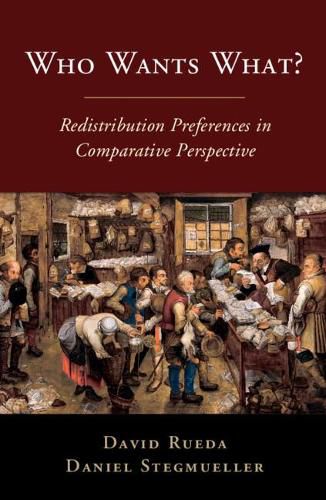Readings Newsletter
Become a Readings Member to make your shopping experience even easier.
Sign in or sign up for free!
You’re not far away from qualifying for FREE standard shipping within Australia
You’ve qualified for FREE standard shipping within Australia
The cart is loading…






Why do some people support redistributive policies such as a generous welfare state, social policy or protections for the poor, and others do not? The (often implicit) model behind much of comparative politics and political economy starts with redistribution preferences. These affect how individuals behave politically and their behavior in turn affects the strategies of political parties and the policies of governments. This book challenges some influential interpretations of the political consequences of inequality. Rueda and Stegmueller provide a novel explanation of how the demand for redistribution is the result of expected future income, the negative externalities of inequality, and the relationship between altruism and population heterogeneity. This innovative and timely volume will be of great interest to readers interested in the political causes and consequences of inequality.
$9.00 standard shipping within Australia
FREE standard shipping within Australia for orders over $100.00
Express & International shipping calculated at checkout
Why do some people support redistributive policies such as a generous welfare state, social policy or protections for the poor, and others do not? The (often implicit) model behind much of comparative politics and political economy starts with redistribution preferences. These affect how individuals behave politically and their behavior in turn affects the strategies of political parties and the policies of governments. This book challenges some influential interpretations of the political consequences of inequality. Rueda and Stegmueller provide a novel explanation of how the demand for redistribution is the result of expected future income, the negative externalities of inequality, and the relationship between altruism and population heterogeneity. This innovative and timely volume will be of great interest to readers interested in the political causes and consequences of inequality.